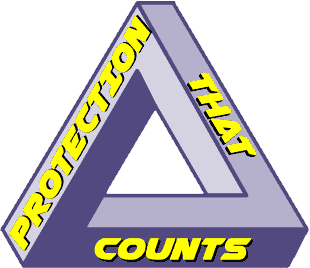
free shipping on orders over $50
WE’RE HAVING A SHORT SALE ON ALL OUR PRODUCTS. ENTER YOUR EMAIL BELOW TO BE NOTIFIED ABOUT FUTURE SALES.

To carry a kubotan legally in different states, you need to understand both federal and local regulations. Federal laws usually allow kubotans, but some places like schools and federal buildings ban them.
State regulations vary a lot: in California, you must keep kubotans unmodified and visible; New York focuses on intent and might label them as dangerous weapons; Texas and Florida have fewer rules but still forbid aggressive use; Illinois bans sharp-edged modifications.
Always check your state and local laws to avoid legal trouble. Staying informed helps you use your kubotan lawfully and effectively for self-defense.
A Kubotan is a small, cylindrical self-defense tool that’s easy to overlook but very effective. It comes from Japan and was created by Takayuki Kubota in the late 1960s. Kubotans were made to be simple but powerful tools for protecting yourself. Police officers first made them popular, and now many everyday people use them for self-defense.
Knowing a bit about kubotan history helps you see why they’re designed the way they are. They’re usually made from strong materials like aluminum or plastic, so they can handle a lot of force. Because they’re small, you can easily carry one on your keychain, so it’s there when you need it.
To use a kubotan effectively, you should learn a few basic moves. You can strike pressure points, use it to apply pain-compliance holds, or swing it to create space between you and an attacker.
Practice these moves often to build muscle memory and gain confidence.
When you carry a kubotan, it’s important to know the federal laws that govern its use and possession. First, you should understand how the law defines a kubotan. Unlike guns or big knives, the kubotan is usually seen as a “less-lethal” self-defense tool. This means it doesn’t have the same strict rules as firearms.
But, federal laws on weapons can still affect you. For example, while the kubotan itself mightn’t be specifically mentioned in federal laws, using it in certain ways could change its legal status. If you use a kubotan and cause serious injury, it might be considered a dangerous weapon. This can lead to serious legal trouble.
Also, carrying a kubotan on federal property, like courthouses or airports, is usually not allowed. Federal agencies have their own strict rules that can override general laws. Always check for specific rules before bringing your kubotan into these places.
Knowing these federal laws will help you stay out of legal trouble. Your next step is to learn about state-specific regulations that could also affect your ability to carry a kubotan.
Navigating state-specific regulations is crucial when carrying a kubotan. Each state has its own laws about self-defense tools, and knowing these can help you stay within the law. Kubotans, with their martial arts history, might be seen differently depending on where you are.
When you think about carrying a kubotan, you should:
Being aware of these factors ensures you won’t be caught off guard.
Carrying a kubotan in California can be tricky, but it’s important to know the rules to stay out of trouble. The kubotan is a small self-defense tool with a rich history in martial arts. Takayuki Kubota originally designed it for non-lethal self-defense.
In California, kubotans are generally legal to carry, but there are some rules you need to follow. You can’t carry a kubotan if you’ve modified it to have sharp edges or if it’s disguised as something else. Doing this turns the kubotan from a self-defense tool into an illegal weapon.
Always make sure your kubotan is visible and looks the way it was originally made to avoid any legal issues. While the kubotan is a legal means of self-defense, be careful about where you carry it.
Schools, government buildings, and some public places might’ve their own rules, so always check before you go in. By staying informed and careful, you can carry your kubotan safely and legally in California.
Navigating the rules for carrying a kubotan in New York requires careful attention, as the state’s laws can be tough. Kubotans, with their long history as self-defense tools, are meant for personal safety. But in New York, carrying one can be tricky if you don’t follow the rules.
Here’s what you need to know:
In Texas, carrying a kubotan is pretty easy compared to New York. You can carry a kubotan without much hassle, making it a handy self-defense tool. But there are still a few things to keep in mind.
First, let’s talk about the different types of kubotans. Whether it’s a keychain kubotan, a tactical pen, or even a flashlight kubotan, Texas law doesn’t heavily regulate these items. You can carry them in your pocket, purse, or even attach them to your keys.
Just make sure the kubotan you choose is meant for self-defense and not disguised as something illegal.
When thinking about self-defense, it’s important to know how to use your kubotan effectively. Texas law lets you use reasonable force to protect yourself, and a kubotan can be part of that.
Learn basic techniques like hitting pressure points and joint locks. These methods can help you defend yourself if you’re ever in danger.
In short, carrying a kubotan in Texas is straightforward. Just know the types and practice your self-defense techniques to be prepared.
In Florida, carrying a kubotan has its own rules. Knowing these rules can help you stay legal while using this self-defense tool. The kubotan, originally from ancient martial arts, is designed to be easy to carry. But Florida has specific laws you need to follow.
Here’s what you should know:
If you’re in Illinois, it’s important to know the rules for carrying a Kubotan.
You can usually carry one for self-defense, but make sure it doesn’t look like another type of weapon.
Always check the local laws to avoid any trouble.
Carrying a Kubotan in Illinois can be tricky due to specific legal restrictions. The state has clear definitions and classifications for weapons that you need to know. In Illinois, the law describes a weapon as any tool used or meant to harm others. This broad definition can sometimes include Kubotans, depending on their design and use.
Kubotans can fall under “impact weapons” classifications. If your Kubotan has sharp edges or features that make it more dangerous, it may be classified differently, leading to stricter rules.
The state also has rules about where and how you can carry Kubotans. For example, carrying a Kubotan in a public place or on school grounds might be against the law or require special permits.
Understanding these points helps you stay compliant with Illinois laws. Always check the latest state rules or talk to a legal expert to stay updated, as laws can change.
Navigating self-defense laws when carrying a Kubotan in Illinois means understanding the rules. Illinois allows you to use a Kubotan for self-defense, but you need to know the legal details.
First, make sure you’re only using the Kubotan to defend yourself. If you use it to hurt someone without a good reason, you could get into serious trouble.
When you carry a Kubotan in Illinois, know where you can legally have it. Schools, government buildings, and some public places might’ve rules against it, so always check local laws.
Also, be careful about how you show the Kubotan. Waving it around or threatening someone with it, even if you’re defending yourself, can get you into legal hot water.
Illinois law says that any self-defense action must match the level of threat you face. If you go too far, you could end up facing assault charges.
Knowing these rules and learning proper self-defense techniques will help you stay safe and legal. Always check local laws and, if needed, talk to a lawyer to understand these rules better.
In Pennsylvania, you should know the rules about carrying a Kubotan.
It’s usually okay for self-defense, but certain situations might change its legality.
Always check local laws and guidelines to make sure you’re following the rules.
When you’re thinking about carrying a Kubotan in Pennsylvania, it’s super important to know the state’s rules to make sure you’re following the law. Pennsylvania calls Kubotans “less-lethal” self-defense tools. But you still need to know how you can use them and where you can carry them to stay out of legal trouble.
If you plan to carry a Kubotan in Pennsylvania, you need to know the self-defense rules. Pennsylvania law lets you carry a Kubotan, but you have to use it responsibly and understand the legal stuff. You can only use it if you truly believe you’re in real danger and need to protect yourself.
To stay legal, use the Kubotan in the right way. Don’t use too much force, or you could get in trouble and turn a self-defense situation into an assault charge. Try to stop the threat without causing too much harm. Pennsylvania law says you should use reasonable force, so it’s important to be careful and in control when using a Kubotan.
Also, check out any local rules that might affect carrying and using a Kubotan in public. By knowing Pennsylvania’s self-defense laws and what they mean, you’ll be ready to use your Kubotan safely and legally.
Always remember, your main goal is to protect yourself without breaking the law.
Carrying a Kubotan in different states can be tricky because the laws vary a lot. To make sure you follow the rules, you need to know each state’s specific regulations.
Here’s how you can stay on the right side of the law:
Wondering if minors can carry a kubotan for self-defense? It depends on your state’s weapon laws. Some states allow it, while others have rules against it. Always check local regulations to make sure you’re following the law and staying safe.
Check your local self-defense laws, but usually, you can’t bring kubotans on public transportation because of safety concerns. Always look up kubotan safety rules and regulations to avoid any legal trouble when you’re traveling.
The legality of a kubotan as a concealed weapon depends on the state. You should check local laws because some places classify self-defense tools like kubotans as concealed weapons, while others don’t. Always make sure you’re following your area’s rules.
Schools don’t allow you to carry a kubotan on their property because of strict safety rules. Even though it’s a self-defense tool, schools usually ban anything that could be seen as a weapon. This helps keep everyone safe and follows their zero-tolerance policies.
Yes, there are rules about kubotan keychain attachments. You should check local laws and self-defense regulations because they can differ. Some places might ban them or have specific rules for carrying them legally.